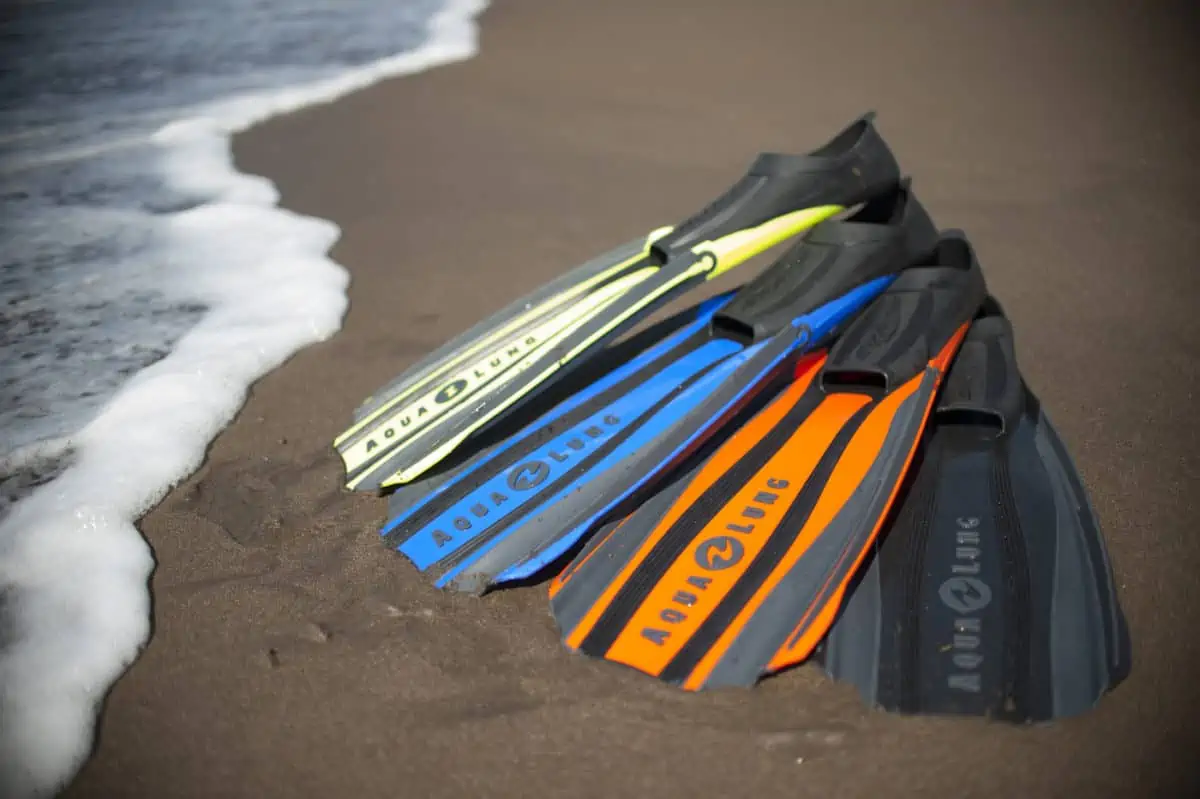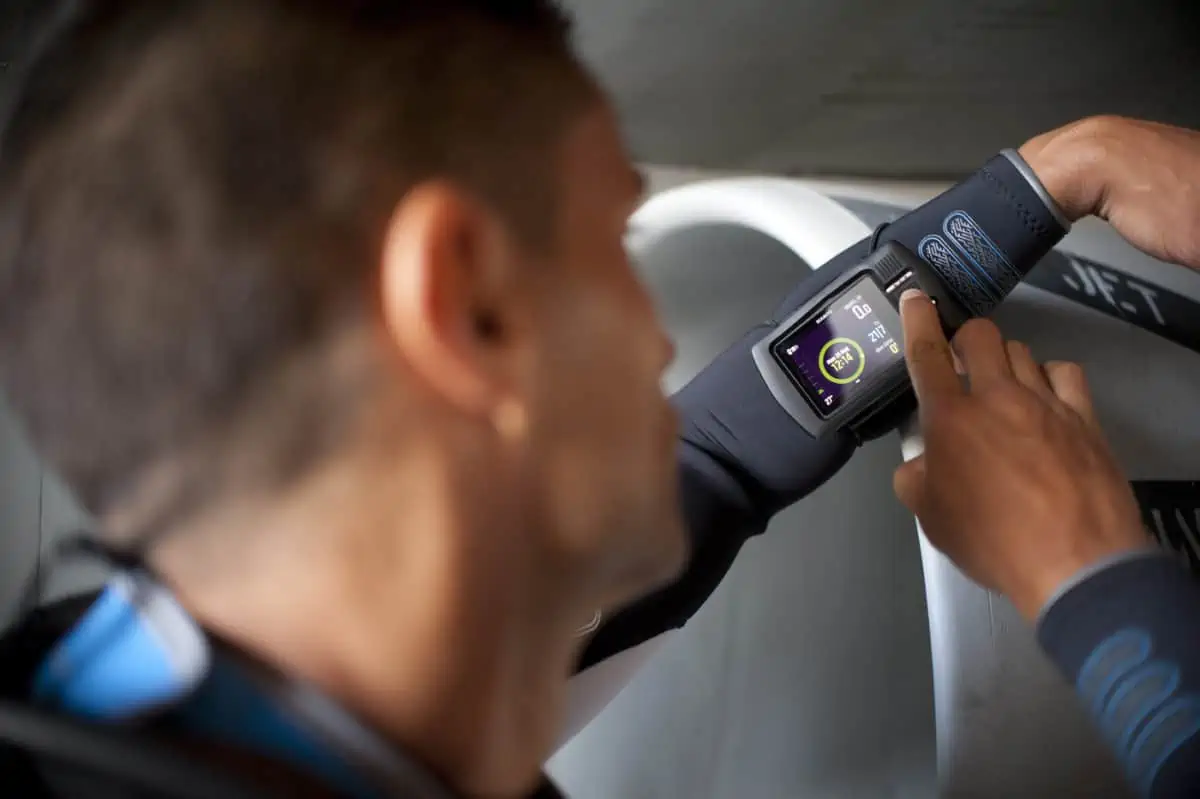Unfortunately for our wallets, scuba diving can be an expensive activity so we might ask ourselves, what scuba gear should I buy first? From regulators to wetsuits to tanks to BCDs to fins to masks, there certainly is a lot of gear we need to tick off our scuba diving equipment list before we take the plunge.
The good news is that you don’t have to buy everything at once. Most dive shops rent out well maintained equipment and often at a reasonable price.
Scuba equipment is a very personal thing to choose and what works for other divers might not work for you. We all have unique body types and dive in different conditions. Fortunately, as you dive more often and rent various types of scuba gear, you’ll get a better feel for what type of equipment suits you the best.
TRY BEFORE YOU BUY
On high price items like your regulator, dive computer, and BCD, rent all types of equipment before you commit to buying. Ask to borrow gear from a friend and keep an eye out for scuba diving demo days, where you get to try out dive gear for free. Keep track in your dive log of the brand, model, and size of equipment that you tested and make a note of whether you liked it or not.
Don’t assume that just because you’re one size in one brand’s equipment, like a BCD or wetsuit, that you’ll be that size in every other. There’s no real manufacturing standard for most dive equipment so you’ll have to try on multiple kinds before investing. Different materials and styles mean that even within one brand, you could still fit in multiple sizes.
1. YOUR DIVING MASK
Shopping for your first mask? Take a look at our guide to help you choose the best dive mask for you.
Missed the manta ray because you were too busy clearing your mask (again)? Have a hard time seeing the disco nudibranch through the scratches? A foggy, leaking, or scratched dive mask can turn a what would have been an incredible dive into an awful one.
For the best diving experience, you’ll need a crystal-clear mask to see all that lives under the ocean’s surface.
Dive masks are one of the most mistreated pieces of equipment at dive shops. Many dive shops replace gear that’s linked closely to safety before they replace dive masks, where safety isn’t as much of a concern. The dive shop you rent from might not have one that fits you, causing you to have a leaky mask during every dive.
Careless divers often throw them at the bottom of their dive bags, leave them on the ground, or put them out in the sun for too long, warping the size and tarnishing the glass. You can’t always expect to show up at a dive shop where all masks are in top notch condition.
Not only is it annoying to dive with a faulty mask, adjusting your mask throughout your dive leads to increased air consumption and stress.
A dive mask should be the first piece of scuba equipment you buy because it’s cheap compared to most other pieces of dive equipment and gives you the most benefit for the lowest cost. Imagine that you just spent hundreds of dollars to join a liveaboard trip in the Maldives or on airfare to dive Roatan. Is it worth the risk of having your trip ruined by a faulty rental mask? All signs point to no.
2. YOUR SCUBA FINS

Photo provided by Aqua Lung
Humans have feet. Fish have fins. Care to guess which one is more efficient at gliding through the water? Like a mask, a poor fitting set of fins can set the tone of your dive. Fins that don’t fit properly cause cramps, are slow, and can pinch your toes. A comfortable set of fins helps you control your buoyancy, increases your speed, and conserves energy.
There are many different types of fins to choose from with various sizes, rigidness, and shape. As a rule, beginner divers who are less conditioned swimmers will probably want to opt for flexible fins with a smaller shape. More experienced divers usually invest in longer, stiffer fins. Try out multiple styles to find the best pair.
To learn how to choose fins and see our selection of the best models of the year, read our guide on the best scuba fins.
Scuba divers are also often avid snorkelers and after you buy your mask, fins, and snorkel, you’ll be able to skin dive just about anywhere. If you are into freediving you can also have a look at our guide about the best freediving fins.
3. YOUR DIVE COMPUTER

Photo provided by Aqua Lung
One of the best things you can do for increasing your dive skills is buy your own dive computer. Many dive shops don’t offer them for rent and if they do, it’s often at a steep price. If you dive without a computer, you’ll have to rely on your guide without any real indicator of how long you’ve been diving and at what depth. Plus, making dive table calculations is a real pain in the urchin.
Rental computers can take time to get used to all its features – costing you precious time and air consumption while underwater. Maybe you’re someone who’s even been caught wearing your rental computer upside down. No? Just me? Okay then.
Once you buy your own dive computer, you’ll become more independent, confident, and skilled at guiding your own dives – one of the biggest benefits for obtaining your Open Water Certificate. Dive computers also calculate your no fly time which comes in handy if you flying and diving is a concern for you. Read our guide on the best dive computers to learn how to choose yours and the models we recommend.
Your first dive computer doesn’t have to be fancy or expensive. A simple computer with a big display and easy navigation is perfect for those just starting out. If you’ve been diving for a while, you might want to splurge on something more flashy, like a computer with wireless air integration or digital compass.
4. YOUR WETSUIT FOR SCUBA DIVING
Many divers claim that your wetsuit should also be a priority when buying dive equipment. This depends on where you dive. Are you diving in all types of temperatures or are you sticking to just one area?
A rental wetsuit is another item that is frequently abused by careless divers. They’re left in the sun, stretched out, stepped on, and we won’t even mention the pee. If you’ll be wearing one often, then you should buy your own pronto.
If you dive mostly in warm water, you might not need a wetsuit. Or, a leaky rental wetsuit won’t be a big deal. In very warm water, a cheap 1-2mm neoprene rash guard might be all that you need.
However, if you dive primarily in cold water or have poor circulation, you’ll need a wetsuit that keeps you warm without any holes or loose pockets for water to gather. According to an article on hypothermia and heat loss while diving by LeisurePro, “water conducts/draws away heat from a diver’s body almost 25 times more efficiently than air.” Staying warm is so important while diving and in this case, retaining heat with the help from a snug wetsuit is a top priority.
Ready to get your first wetsuit? Read our guide about the best wetsuits for diving and how to choose yours.
Try on many different brands, styles, and cuts to see what works for you. Remember that the wetsuit thickness and volume affects how much extra weight you’ll need and how flexible you can be.
